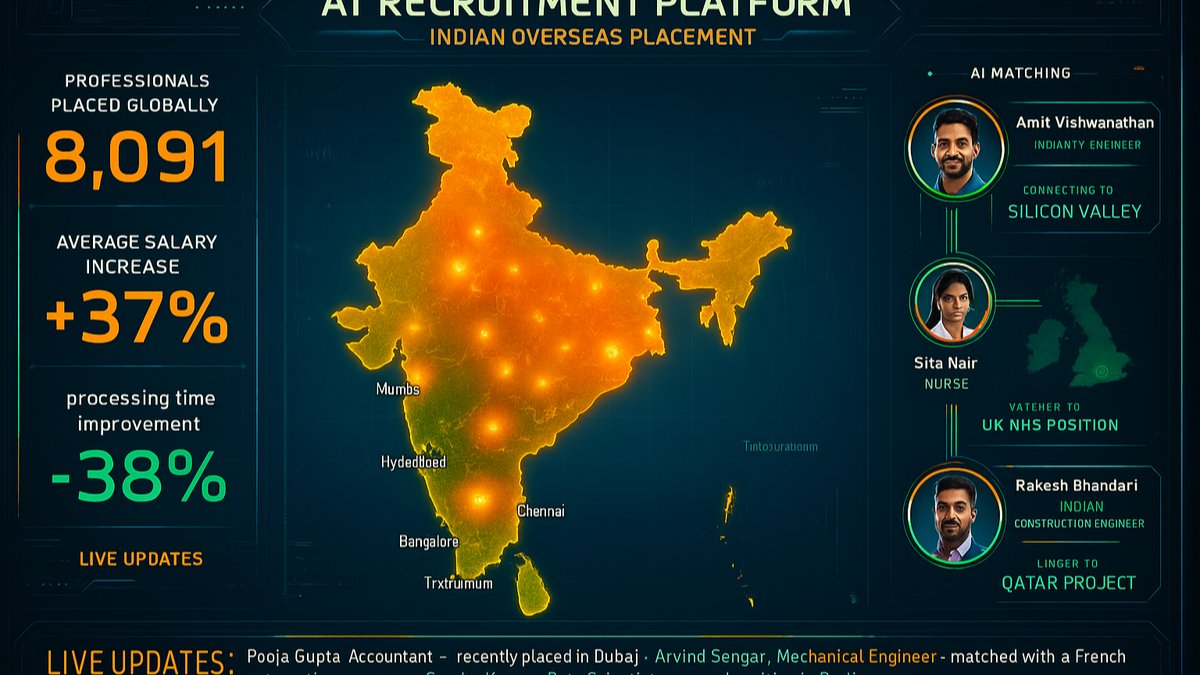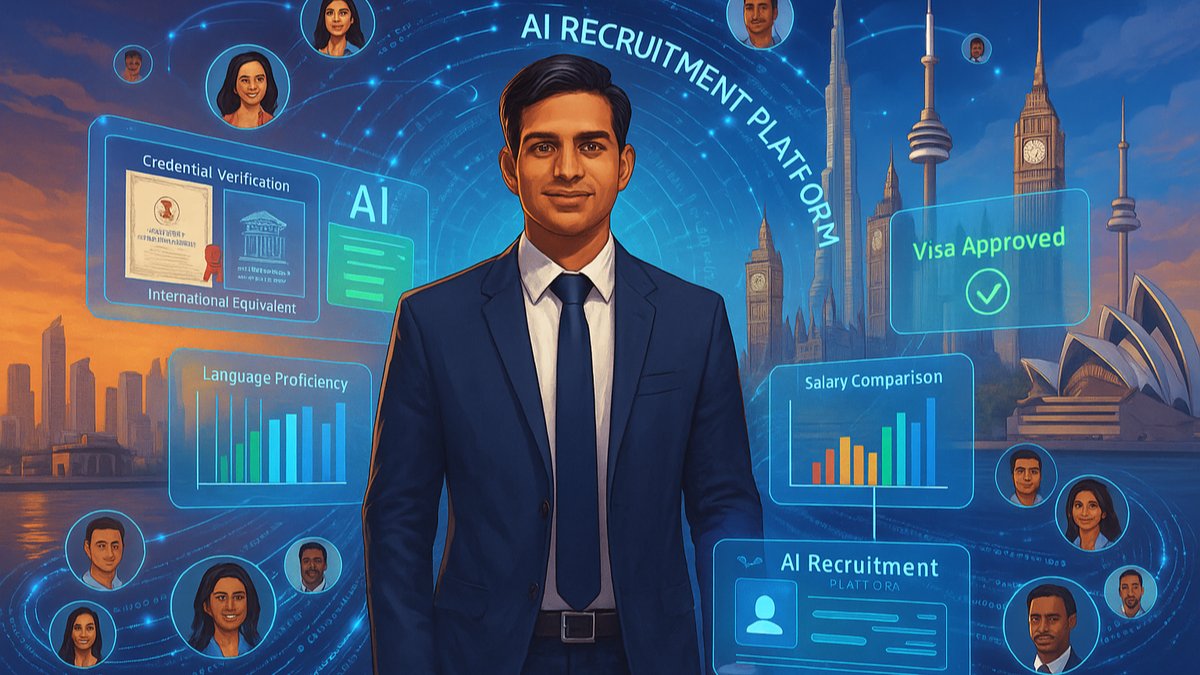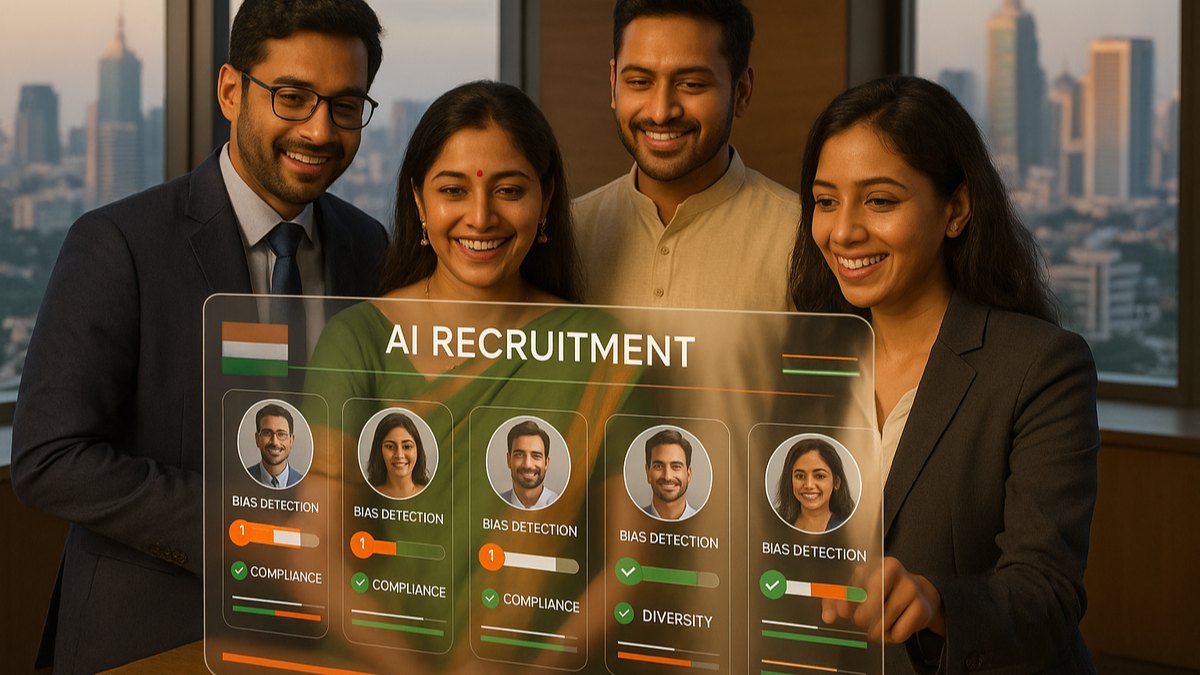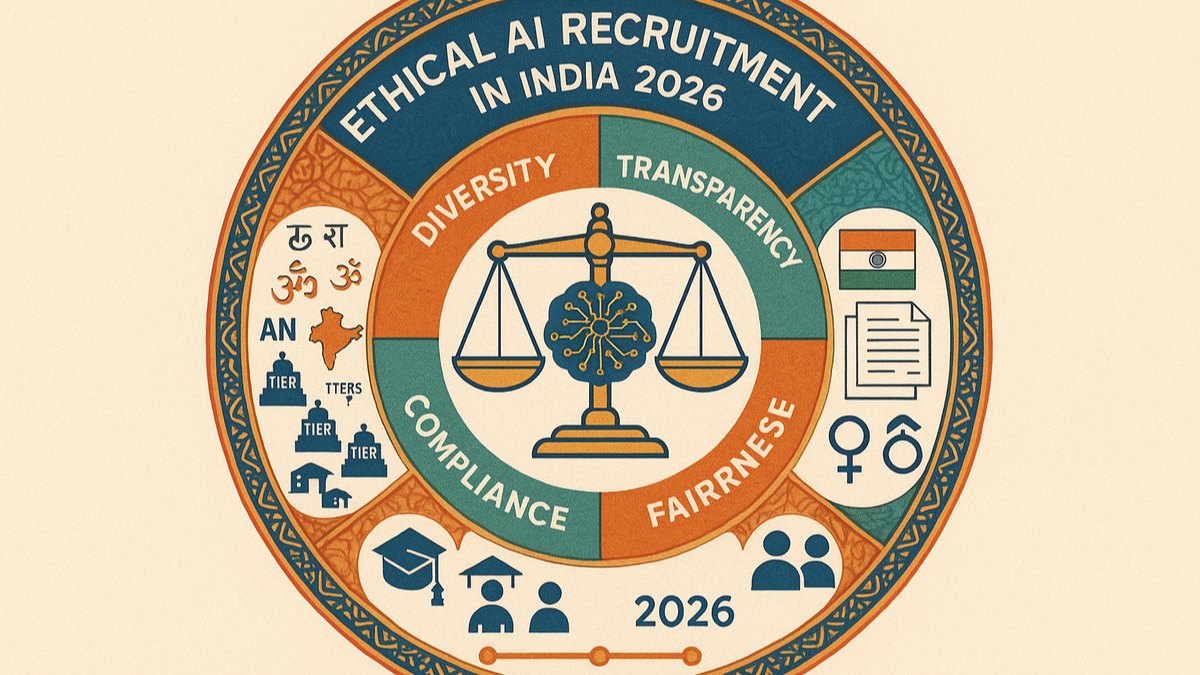India’s workforce has long been recognised globally for its skill, dedication, and adaptability. Now, AI in Indian overseas recruitment is revolutionising how millions of Indian professionals find international opportunities. At MahadManpower.in, we’re at the forefront of this transformation, witnessing how artificial intelligence breaks down barriers and creates pathways for Indian talent to shine on the world stage.
AI in Indian overseas recruitment addresses challenges that have persisted for decades. From verifying credentials across different educational systems to matching cultural fit in diverse work environments, AI provides solutions that make international placements faster, more accurate, and more successful than ever before.
AI in Indian Overseas Recruitment: Transforming the Scale of Opportunity
India produces millions of qualified professionals annually, but connecting them with global opportunities has traditionally been inefficient. AI in Indian overseas recruitment changes this by processing vast numbers of profiles simultaneously, identifying matches that human recruiters might miss.
Whether it’s nurses for the UK’s NHS, engineers for Middle Eastern mega-projects, or IT professionals for Silicon Valley, AI systems analyse thousands of opportunities against millions of profiles instantly. This scale of matching was impossible with traditional methods, but AI makes it routine, opening doors for professionals from tier-2 and tier-3 cities who previously lacked access to international recruiters.
Credential Recognition and Validation
One of the biggest challenges in overseas recruitment involves credential recognition. AI in Indian overseas recruitment solves this by maintaining comprehensive databases of Indian educational institutions, professional certifications, and their international equivalents. The technology understands that an engineering degree from an IIT commands global recognition while also accurately representing qualifications from state universities and technical institutes. AI tools helping indian workers.
AI systems automatically translate Indian marking systems to international standards, explain the rigour of Indian professional training, and highlight achievements that resonate with foreign employers. This translation is crucial; many excellent Indian candidates were previously overlooked simply because recruiters didn’t understand their qualifications.
Language Proficiency and Communication Skills
While India’s English proficiency is a significant advantage, AI in Indian overseas recruitment goes beyond basic language assessment. The technology evaluates communication skills specific to target industries and countries. A nurse heading to Australia needs different communication competencies than a software developer joining a German tech company.
AI provides personalised language training recommendations, identifies accent modification needs for specific roles, and even assesses cultural communication styles. This targeted approach significantly improves placement success rates and helps Indian professionals integrate smoothly into their new work environments.
Navigating Complex Visa Requirements

Visa processes vary dramatically across countries and can change frequently. AI in Indian overseas recruitment maintains updated databases of visa requirements, processing times, and documentation needs for every major destination. The system alerts candidates to requirement changes, tracks application progress, and predicts potential issues before they cause delays.
For instance, when Canada updates its Express Entry requirements or the UAE modifies its employment visa rules, AI systems immediately adjust their candidate preparation processes. This agility ensures Indian professionals don’t miss opportunities due to documentation delays or regulatory changes. AI recruitment business.
Smart Matching Beyond Skills
AI in Indian overseas recruitment considers factors beyond technical qualifications. The technology analyses successful placement patterns to understand which profiles thrive in specific environments. An Indian software engineer who succeeded in Japan’s work culture might share characteristics with other candidates suited for Japanese companies.
These insights consider work-style preferences, cultural adaptability indicators, and even family considerations that affect overseas success. By matching holistically rather than just technically, AI dramatically improves long-term placement satisfaction and reduces early returns.
Protecting Against Fraud
Unfortunately, overseas recruitment has historically attracted fraudulent operators exploiting dreams of foreign careers. AI in Indian overseas recruitment includes sophisticated fraud detection mechanisms. The technology verifies employer legitimacy, flags suspicious job postings, and identifies recruitment scams before they harm candidates.
AI maintains databases of verified international employers, tracks recruiter credibility scores, and alerts candidates to red flags like excessive upfront fees or unrealistic promises. This protection is especially crucial for first-time overseas job seekers who might not recognise exploitation attempts.
Salary Optimization and Negotiation Support
Indian professionals often undervalue themselves in international markets. AI in Indian overseas recruitment provides real-time salary benchmarking, considering factors like location, industry standards, cost of living, and total compensation packages. Armed with this data, candidates negotiate from informed positions. Overseas recruitment agencies in india.
The technology also educates candidates about non-monetary benefits common in different countries, from healthcare packages in the US to housing allowances in the Gulf. This comprehensive understanding ensures Indian professionals secure fair, competitive packages that reflect their true value. Global ai recruitment solution.
The Future is Bright
AI in Indian overseas recruitment continues evolving with features like virtual reality workplace previews, blockchain-verified credentials, and predictive career path modelling. These advances make international careers increasingly accessible to every qualified Indian professional, regardless of their location or background.
Ready to explore global opportunities? MahadManpower.in combines cutting-edge AI technology with deep understanding of Indian talent and international markets. Upload your resume today and let AI connect you with your dream international career. The world is waiting for your skills.



